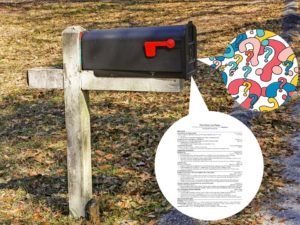
We hope you had a chance to participate in the Fall Career Expo or STEM Networking Breakfast events yesterday. Events like these should be considered the opening introductory touchpoint in an ongoing meaningful relationship. As such, there are steps you must take to foster and cultivate that relationship now that it is off the ground. Today will focus on some things to do the next day (ideally). Part 2 covers the following weeks and the long term.
Immediately following the event (ideally within 24 hours)
Hopefully you know the importance of sending a thank-you note within 24 hours after an interview, but did you know you should also send a thank-you note after a career fair or other networking event? The employer took time out of his or her day to speak with you personally about your career interests, their organization, and opportunities where those two topics might come together. You need to show appreciation for this time, and indicate that you feel there is a mutual connection between your background and their organization. This does not need to be as long as a cover letter. A few sentences in an e-mail will suffice, but avoid being too generic. They met with many individuals at the event, so you want to remind them of something unique about yourself or of interest from your conversation so they can picture you in their mind. Rather than “Thank you for your time last night; I enjoyed learning about your company; I look forward to hearing from you;” consider the following example:
Good morning, [his or her name].
Our conversation at the Career Expo last night was very engaging, and I greatly appreciate the time you spent discussing how my background in [your field] would add value to [name of their organization]. My research into [your specific topic] seems to fit well with [project names or brief description of 1-2 current projects at their organization]. You mentioned you will be conducting interviews in the coming weeks, and I would sincerely enjoy participating in that process. Please let me know if you have any questions about my background or if there is anything I can do in the meantime to help foster this relationship.
Warm regards,
[Your name]
If your specific research topic did not come up in the conversation or is not related to the organization’s work, then connect back to another aspect of your background you discussed, such as a leadership role, teaching experience, or something else from the conversation. You want to remind them of who you are, and reiterate something great about you that should interest them. If they are not conducting interviews as shown in the above example, refer to something else that they mentioned to demonstrate you were listening and are interested in their organization moving forward. Here’s another example:
Dear [his or her name],
Thank you for a fantastic conversation yesterday at the Notre Dame Sustainability Expo. I enjoyed learning about how you are helping corporations understand ESG and work toward better environmental and social outcomes.
As I mentioned, I am currently finishing my master’s degree in [your program] and really excited to be working in the field of ESG. I am graduating this December and actively looking for roles in the industry, and I would love to chat further with regards to opportunities at [their organization]. I am attaching my resume along with this email for your reference.
Thanks again for coming out to the expo and for sharing so much of your time!
Best,
[your name]
Check back next week for Part 2, focusing on steps to take over the coming weeks and months after a career event. In the meantime, leave your comments below with your own tips and experiences for being #IrishReady to follow up with an organization’s reps.







 (Source:
(Source: 